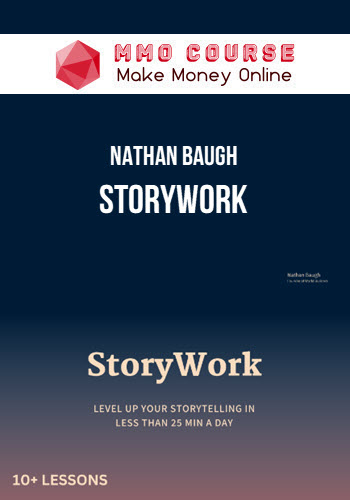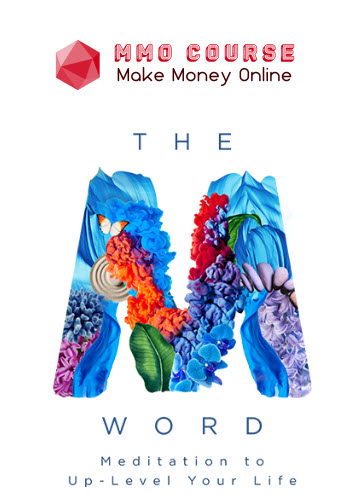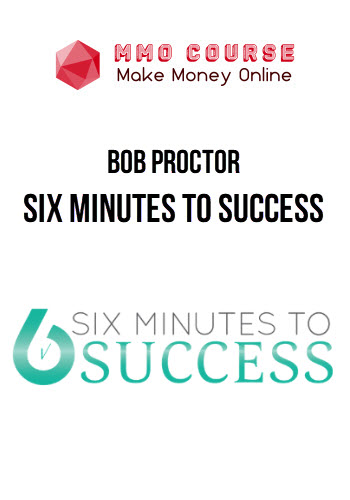Nathan Baugh – StoryWork
$95.00 $39.00
Total Sold: 2
»Instant Deliver
Description
Nathan Baugh – StoryWork
Master the Fundamentals of Captivating Story
In 1991, three researchers asked a simple question:
“What’s the most effective way to learn a new language?”
They tested a bunch of different techniques. Books, grammar lessons, expensive courses, and much more.
But the most effective technique proved to be dead simple:
Have the beginner speak with and mimic a native speaker, every day.
Tim Ferriss has a great explanation:
“Language fluency is **more dependent on practicing the right things than learning the right things. **The rules can be learned through materials and classes, but the necessary tools will come from independent study and practice in a native environment.”
The same is true for writing. You can learn the grammar, memorize vocab, and even study templates, but if your writing has no style and flow of your own, it falls flat.
David Perell runs Write of Passage, an exceptional school for writing.
He has one mental model for learning anything:
“Imitate, then Innovate.”
In teaching writing, the imitation phase gets skipped. Most classes go from “here’s how to do it” to “good luck! Make something great.”
This skips a crucial step. A step many of the greatest writers ever practiced every single day…
It’s called CopyWork. The concept is simple, yet incredibly powerful:
Take exceptional writing, and copy it by hand.
But don’t listen to me. Legends like Ernest Hemingway, Jack London, and Isaac Asimov used CopyWork to develop their writing style.
Then what’s StoryWork?
A 10-day writing and copywork course focused on storytelling.
These “lessons” are not really lessons. They’re 25-minute guided writing sessions.
At the end of each day, you’ll have a full page of the world’s best writing seeping into your brain. We pull passages from fiction, non-fiction, and exceptional essays.
I’ve done this almost daily for three years now on my way to 250K followers between Twitter and LinkedIn, 55K newsletter readers, and 3 books.
What You’ll Learn In StoryWork?
- Forced practice. With curated texts to copy, you don’t just learn the right things. You actually put pen to paper.
- Pattern matching. As you copy, your brain starts to pattern match. Oh, that’s a killer hook. There, they built tension. Ah, that’s an open loop.
- Imitate, then innovate. By imitating others, you start to develop your own style.
Sale Page: Nathan Baugh – StoryWork
Delivery Policy
When will I receive my course?
You will receive a link to download your course immediately or within 1 to 21 days. It depends on the product you buy, so please read the short description of the product carefully before making a purchase.
How is my course delivered?
We share courses through Google Drive, so once your order is complete, you'll receive an invitation to view the course in your email.
To avoid any delay in delivery, please provide a Google mail and enter your email address correctly in the Checkout Page.
In case you submit a wrong email address, please contact us to resend the course to the correct email.
How do I check status of my order?
Please log in to MMOCourse account then go to Order Page. You will find all your orders includes number, date, status and total price.
If the status is Processing: Your course is being uploaded. Please be patient and wait for us to complete your order. If your order has multiple courses and one of them has not been updated with the download link, the status of the order is also Processing.
If the status is Completed: Your course is ready for immediate download. Click "VIEW" to view details and download the course.
Where can I find my course?
Once your order is complete, a link to download the course will automatically be sent to your email.
You can also get the download link by logging into your mmocourse.hk account then going to Downloads Page.
Related products
Total sold: 13
Total sold: 4






![Bob Proctor - Ultimate Collection [24 Courses in 1 pack]](https://mmocourse.org/wp-content/uploads/2023/02/Bob-Proctor-–-Ultimate-Collection-24-Courses-in-1-pack.jpg)



